Has Drag Race lost its sparkle? An investigation
Category is: constructive criticism. (Sorry, RuPaul). Drag Race may be an LGBTQ+ TV staple - but has it reached saturation point?
By Jason Reid
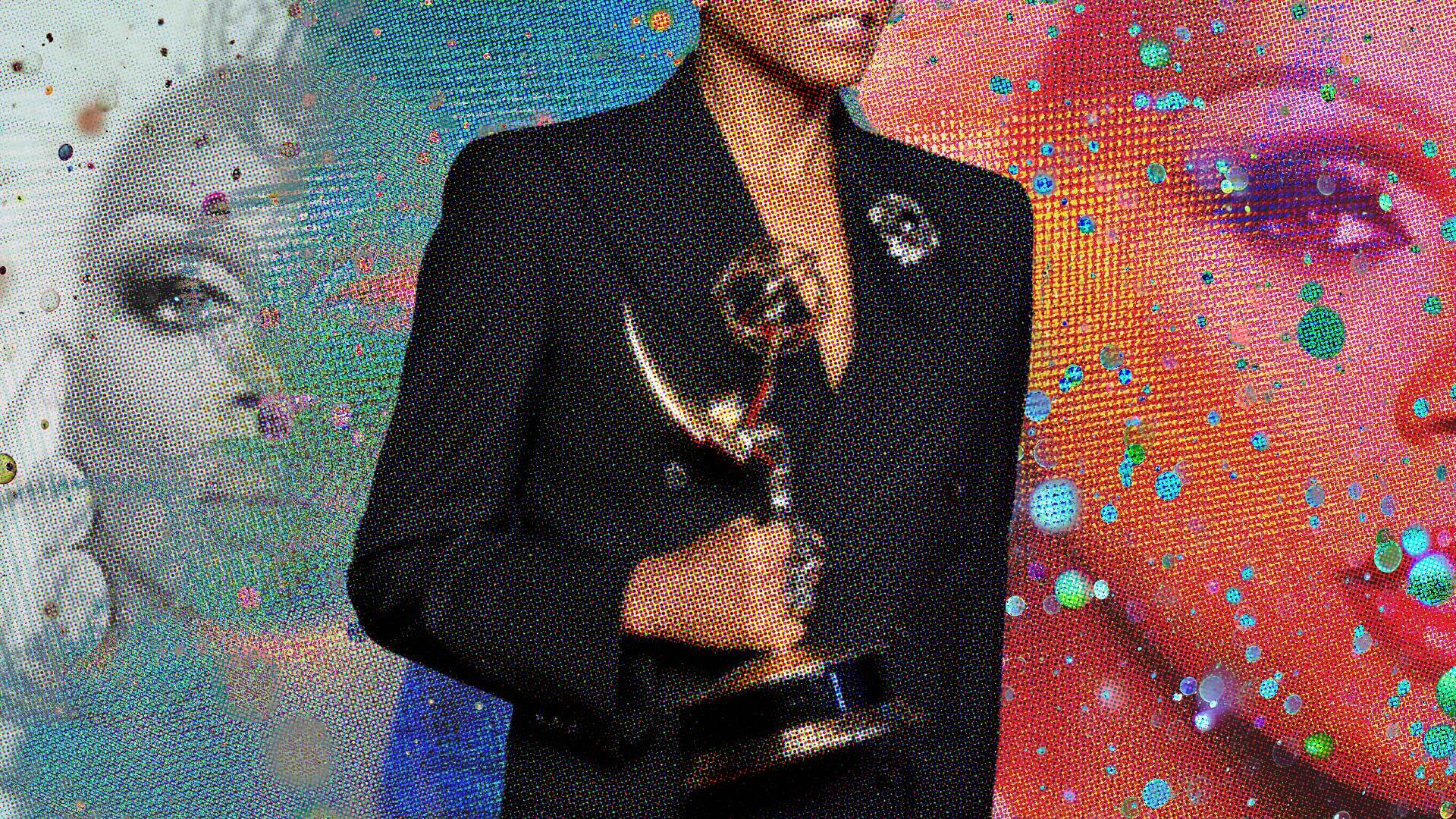
A force of nature which is the principal driver of LGBTQ+ empowerment across the world. Predictable, formulaic, and somewhat contrived.
A show that consistently highlights important LGBTQ+ issues in the mainstream, which in turn ignites conversations and brings about change. A brand that has commodified drag to the nth degree and is inextricably linked with consumer capitalism.
The perfect avenue for LGBTQ+ artists to turbo-boost their career and reach a whole new audience, which can be utilised for social activism.
The hegemony of drag has reached saturation point, relentlessly churning out seasons across the world and making the dreams of some artists come true, while others are left in mountains of debt.
Or just a bit of fun, babes.
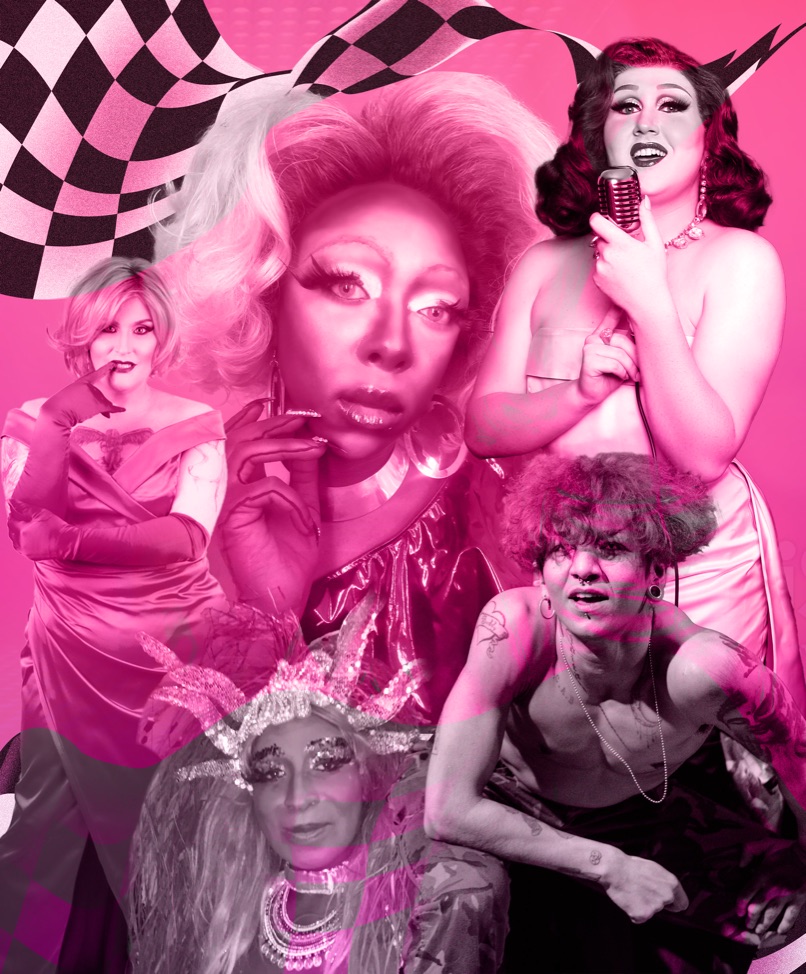
All of these statements could apply to RuPaul’s Drag Race in one way or another. When I think about the impact Drag Race has had on the broader LGBTQ+ scene — which I’ve worked in or around for 20 years — as well as mainstream entertainment and culture, I’m filled with mixed emotions, and many LGBTQ+ people I speak to feel the same. With a media empire that now spans the globe, Drag Race is arguably as polarising as it’s ever been.
Meanwhile, away from the glitz of the TV show, drag has never been more debated, where an increasing number of US states are seeking to introduce or have introduced anti-drag bills. At a time when drag is making mainstream news headlines, just how inclusive is the TV jewel in the drag world’s crown?
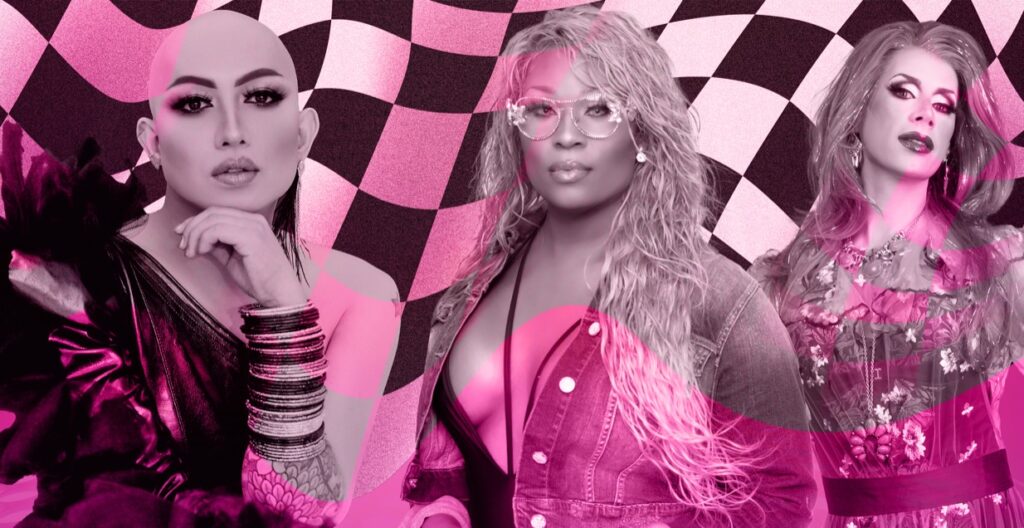
For RuPaul, the ascent of Drag Race from niche network when it first aired in 2009 to Emmy Award-winning gamechanger showing on VH1 and now MTV was a foregone conclusion. “Yes!” Ru replied affirmatively when he posed the rhetorical question to contestant Luxx Noir London on whether a young Ru in the mid-80s would have ever envisioned that he’d one day host the biggest, queerest franchise in the world.
“We need all genres, including kings — and how about some representation for the older queens aged 45-plus?” – Alexa Vox
Ru, of course, was no overnight success. He’d grafted for years in the clubs of New York and as a presenter on the Manhattan Cable network, before finding mainstream fame duetting with Elton John in 1993, and becoming a featured artist on records with Diana Ross, Lil’ Kim and Miley Cyrus, among many others.
The impact of Drag Race extends beyond LGBTQ+ fans: anybody attending DragCon can see how the programme’s ravenous fanbase is largely young, cis women. By 2018, the show had launched in Thailand, before reaching the UK via the BBC a year later, with spin-offs now in Canada, Spain, Australia, Italy, Holland, and more to come.
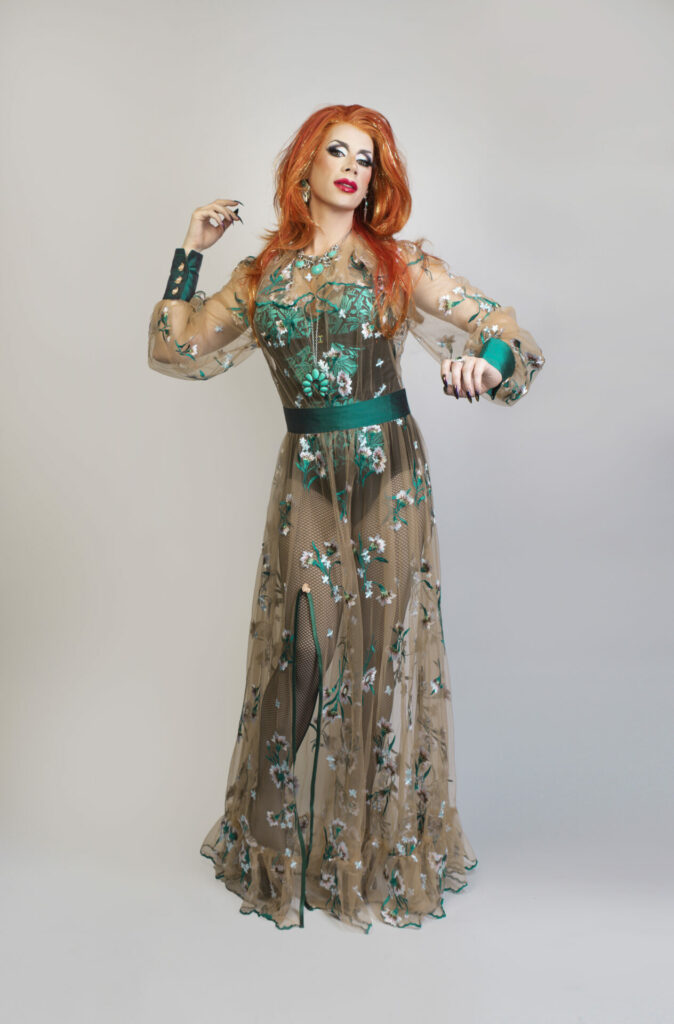
Drag Race made household names of queens who once earned a living on stage in local bars. Bimini, Divina de Campo, Shangela, Tia Kofi, to name just a few, are now known not just in drag circles, but far beyond. Just look at Jinkx Monsoon currently storming Chicago every night on Broadway. The Vivienne and Kitty Scott Klaus are on primetime TV. Alyssa Edwards has her own Netflix show.
One of Drag Race’s most popular winners, Bianca Del Rio, sold out Wembley Arena! In 2017, Peppermint made history as the show’s first openly trans contestant. She came second overall, and since then has toured extensively, also working in TV, film, and theatre — notably as Euphoria in season 2 of Pose. An ardent social rights activist and Attitude Award winner, she often uses her platform — which grew considerably following her Drag Race appearance — to speak out about issues that are close to her heart.
Cut to 2023 when Sasha Colby, a trans woman, won the crown at the end of Drag Race’s fifteenth season. It was a “specific choice to be naked in these times,” she said after the season finale referring to her showstopping almost nude finale appearance. She took the crown from season 14 winner, Willow Pill, who announced they were trans during their season. Colby and Pill add to a recent procession of trans winners including All Stars’ Kylie Sonique Love and Jinx Monsoon.
“There was a moment in time before Drag Race became big that drag was becoming popular enough to have a great career,” says Peppermint. “After three auditions I made it onto the show, even though it was my first time in a setting like that, I felt that my 20-plus years of drag entertainment and travelling the world prepared me for what was to come after the show.”
It’s not surprising that she is a Drag Race supporter. “With drag, I say the more the merrier. I’d like to see even more. I love the fact that it’s [Drag Race] making a huge impact around the world. Drag Race is an undeniable hit. It certainly paved the way for shows like Dragula, Drag Den and Call Me Mother on Froot TV.”
Drag Race contestants have not been the only winners. Anecdotal evidence suggests that even those who have never even set foot in the famous werkroom are also reaping the rewards of this TV phenomenon — in a kind of trickle-down drag economics, if you will.
“With drag, I say the more the merrier.” – Peppermint
“Trickle-down dragonomics is real, and I thank the good lord for it — the good lord being [Drag Race TV production company] World of Wonder and its many franchises, despite its many problems,” drag artist and activist Son of a Tutu tells Attitude. “The opportunities that exist for us in the wider world — be it on television, in film, theatre, or any form of arts and culture, and within the community itself — are now exponentially more than they ever were. The days of having just one visible drag queen — Danny La Rue, Lily Savage — while the rest languish in obscurity, are now gone!”
Although some venues have done well off the back of Drag Race with well-attended viewing parties and special shows fronted by queens from the numerous series, for most it’s been business as usual. London’s Royal Vauxhall Tavern (RVT) is the UK’s leading LGBTQ+ entertainment venue. On weekdays, it stages queer cabaret and burlesque shows, and on Saturday and Sunday, it’s all about drag with Me the Drag Queen, Myra DuBois, the D.E. Experience and more. The RVT is always bustling with drag and cabaret devotees, but Drag Race and its alumni rarely feature.
On the minus side, although there may be more events and ergo more work for artists as a result of Drag Race’s popularity, are those opportunities being distributed equitably? The programme continues to let itself down by under-representing the full spectrum of LGBTQ+ people and, in the case of drag kings, completely omitting them. There’s no excuse for exclusionary practices in 2023, especially as, arguably, drag kings as performance artists have existed in culture as far back as the mid-19th century, if not before.
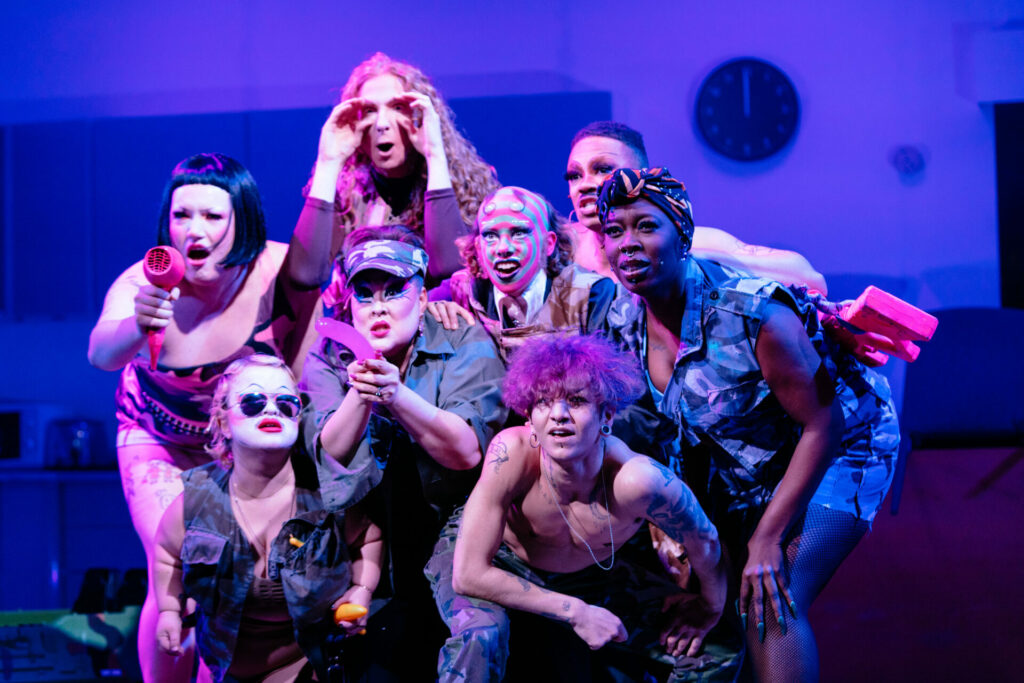
Chiyo is a drag artist and star of Travis Alabanza’s play, Sound of the Underground, which recently enjoyed a sold-out run at the Royal Court to rave reviews. “Drag Race is oversaturated, boring, capitalism which has drained all the joy out of drag, and even with their tokens, it’s a cis man’s world,” Chiyo rages.
“Not only is the programme itself outdated, patriarchal, and just another way to show othered queers that both cis men and straight female allies — all the guest judges that know nothing about drag but still judge the show — will always be allowed into a space before them. A show that was originally for the misfits has become a tool for making men richer by catering the camp ones to their ever-growing straight female audience.”
Holestar is a well-known drag artist who’s been performing for 20 years, and yet they’re not experiencing transformative change as a result of Drag Race: “Drag line-ups still predominantly feature white, cis, male drag queens despite there being more women doing drag than ever before. Many venues won’t book me because I was born with a mimsy,” they say.
“There’s also a new and terrifying thing emerging where young queens have grown up on Drag Race.” – Bipolar Abdul
Non-binary drag artist Bipolar Abdul, who performs at The Reading Room in Doncaster, goes further in their criticism of the series. “I’ve found that it has been more difficult for me to be taken seriously as a drag artist based on the fact I’m AFAB [Assigned Female At Birth], and I hold Drag Race somewhat responsible for that,” says Bipolar.
“I have literally had experiences where during performances I’ve taken a jacket off to reveal not a breast plate but two slightly lopsided, real tits, and there has been an audible groan or sigh from the audience — again, young, cis, gay men. There’s also a new and terrifying thing emerging where young queens have grown up on Drag Race. They’ve absorbed it in their formative years, and they follow all the rules, buy all the expensive things and have an end goal of getting on Drag Race — like, the only reason you start doing drag is to get on Drag Race.”
But others think the show is moving in the right direction. Asifa Lahore, a trans woman, is Britain’s first out Muslim drag queen. “Trans representation has come on in leaps and bounds, especially in the past few years,” she says. “As a trans person and trans queen, I’d love to compete on Drag Race. I’m a massive fan of the UK version. What I’d really like to see is more South Asian representation, particularly because the South Asian community is the largest ethnic minority in the UK but is still yet to be represented.”
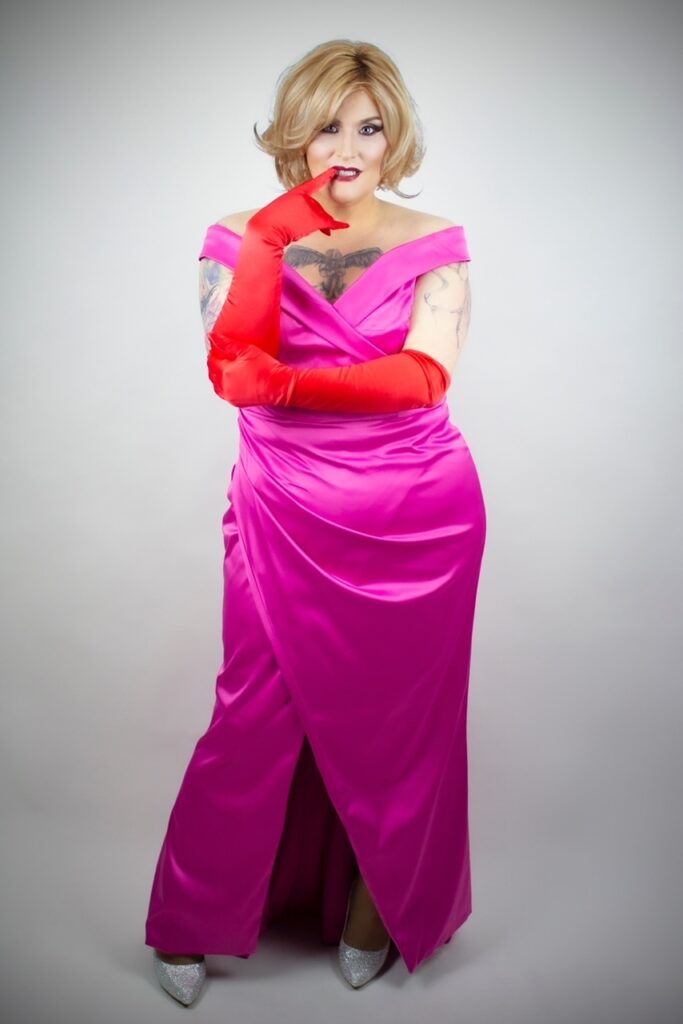
Winner of Pride’s Got Talent 2022, a competition that prides itself on inclusivity, Alexa Vox is pleased that Drag Race has finally embraced trans women. “As a trans woman it’s been great to see the recent inclusion of trans contestants, but it’s still only ever been one type of drag. We need all genres, including kings — and how about some representation for the older queens aged 45-plus?”
There have been glimmers of hope that Drag Race is slowly diversifying. Maddy Morphosis became the first straight contestant to appear on the show in 2021. Gottmik reached the final as the series’ first trans male contestant in season 13. Victoria Scone was a fan favourite during Drag Race UK season 3, and a contender for the crown, until she had to leave the show due to an unfortunate ankle injury during a lipsync. Yet it’s harder to see the US show breaking with its safe format and embracing drag kings or cis- female contestants.
“I don’t think it’s got long left, I really don’t. Look at the patterns with these types of shows. Celebrity versions, selling it to other countries. Then all of a sudden… It used to be this prestigious… You’d look forward to it. Now, I don’t know when it’s on. It’s crazy” – The Vivienne
Another, more straightforward criticism of Drag Race is the show’s numerous editions. Has it now simply reached overkill?
Despite The Vivienne’s success off the back of Drag Race, even she agreed that it’s lost its shine when Attitude interviewed her last year. “I think they’re fully aware of what they’re doing, which is why they’re shagging it for every penny. I don’t think it’s got long left, I really don’t,” she said. “Look at the patterns with these types of shows, like The X Factor. Celebrity versions, selling it to other countries. Then all of a sudden… It used to be this prestigious… You’d look forward to it. Now, I don’t even know when it’s on. It’s crazy.”
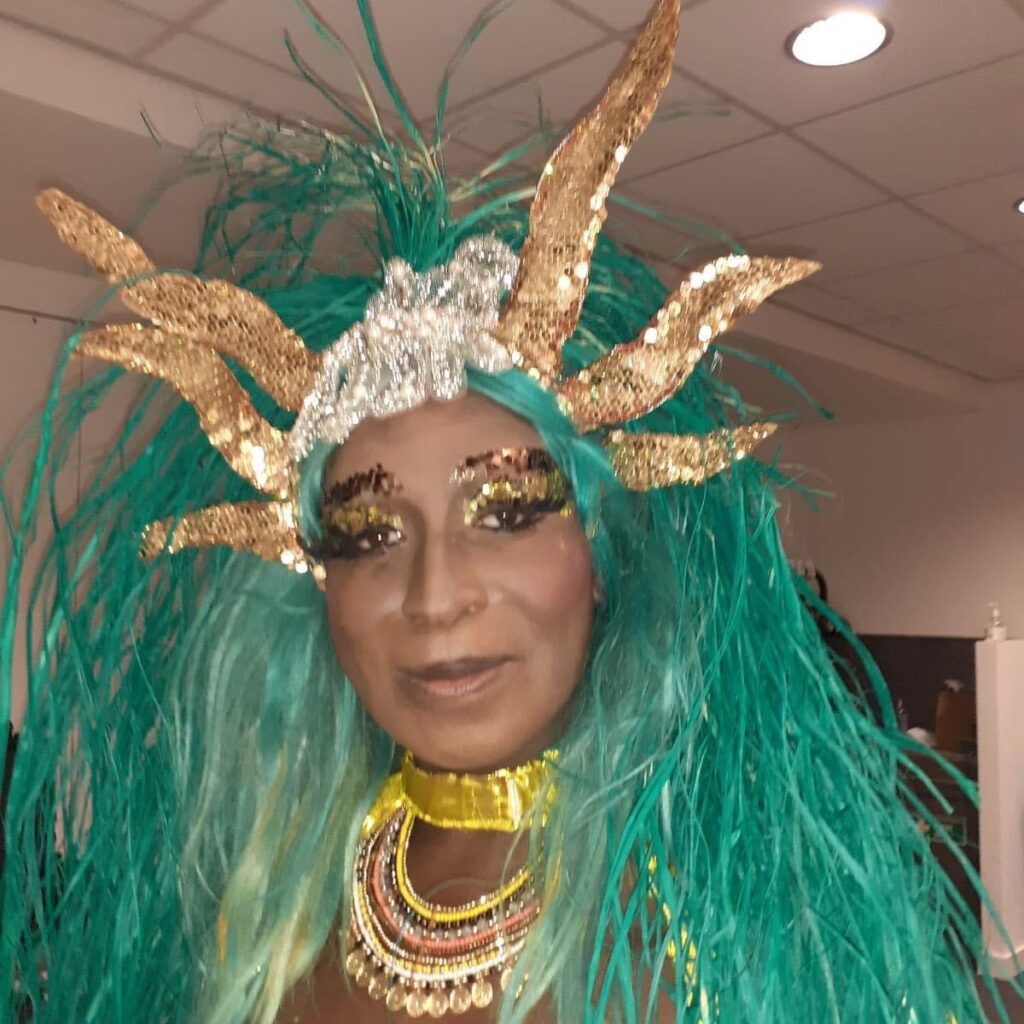
Ebony Rose Dark, a Brighton-based cabaret performer who describes themselves as a VIP (visually impaired) artist, has watched Drag Race since its inception, but has lost interest of late. “Drag Race doesn’t have the flair it once had,” says Ebony, before going even further, adding: “It’s commercialising, sterilising drag. It’s not opening people’s minds; it’s shrinking their minds and that’s sad.”
But another Brighton drag queen, Melanin Monroe, remains a fan and has high hopes of being on the show someday: “Love it, hate it, it’s done a lot for the global drag scene,” she says.
Looking beyond drag, over the years there have been numerous Drag Race moments that have had an impact on viewers, educating and initiating open discussion across the divides, which can surely be held up as justification alone for the show’s existence. For me, as an Aids survivor, seeing Ongina open up about their HIV-positive status on season 1 was a special experience that touched me deeply, so much so that I still remember it vividly. The pureness and authenticity made it incredibly unique.
Let me be clear: the positive real-life effect on one’s state of mind that comes from experiencing such kinship with a complete stranger on a TV show cannot be underestimated.
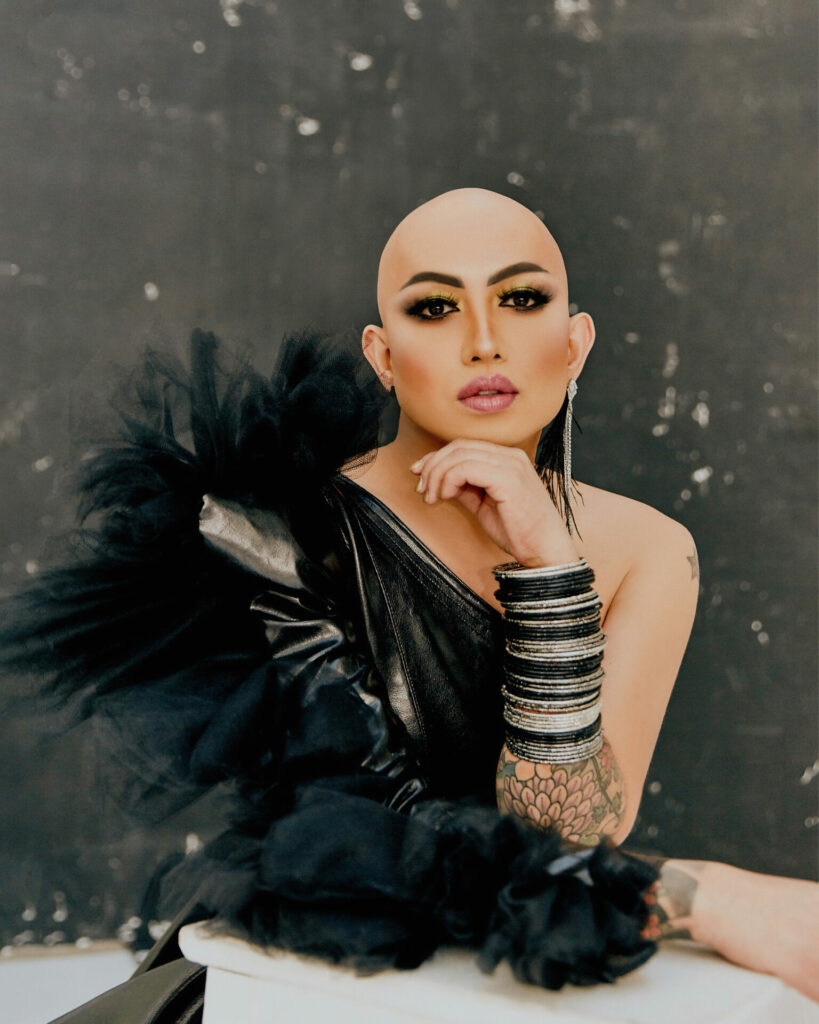
Ongina kindly shared their thoughts about that ground-breaking moment and its impact. “At the time of filming, while winning a maxi challenge, I broke down and announced my HIV-positive status to the room without even thinking how that would later impact my life,” they say. “I did it because I was so overwhelmed with emotions for winning that challenge and it hit so close to home for me and I celebrated by letting them know how important that win was for me.
“Years later, with so many seasons and so many other entertainers sharing their personal journey with HIV, I’m still so thankful for that moment where I was finally able to say out loud what I feared when I was first diagnosed. The moment helps me live openly and freely about my status. It has also allowed me to connect with so many other people living the same journey as me, knowing that we all inspire each other to live and celebrate life.”
“I want to see queer people succeed and showcase their art, I don’t want to constantly feel bad for them” – Chanel N°5
In a similar vein, when Divina de Campo spoke frankly about Section 28 on the first season of Drag Race UK, it was a pivotal moment, principally because here we had a first-hand account of the effect the legislation had on a queer person, not something fed through a government minister or partisan commentator.
“It was one of the first times an LGBTQ+ person had been given the space to talk about the impact Section 28 has had on our lives,” says Divina. “I received a huge response from LGBTQ+ and straight, cis folk who had no idea our country had enacted such a regressive and damaging legislation, and that for those in the community it suddenly made what they had endured make sense.”
Cabaret artist Chanel N°5 is a fan of the show and appreciates how it can bring to light some very worthwhile topics, but says she’d rather see less of that kind of thing. “Drag Race sometimes falls into the trap of making all the queens seem like they’ve had huge amounts of trauma in their lives, perpetuating stereotypes that queer people all have trauma. I want to see queer people succeed and showcase their art, I don’t want to constantly feel bad for them,” says Chanel.
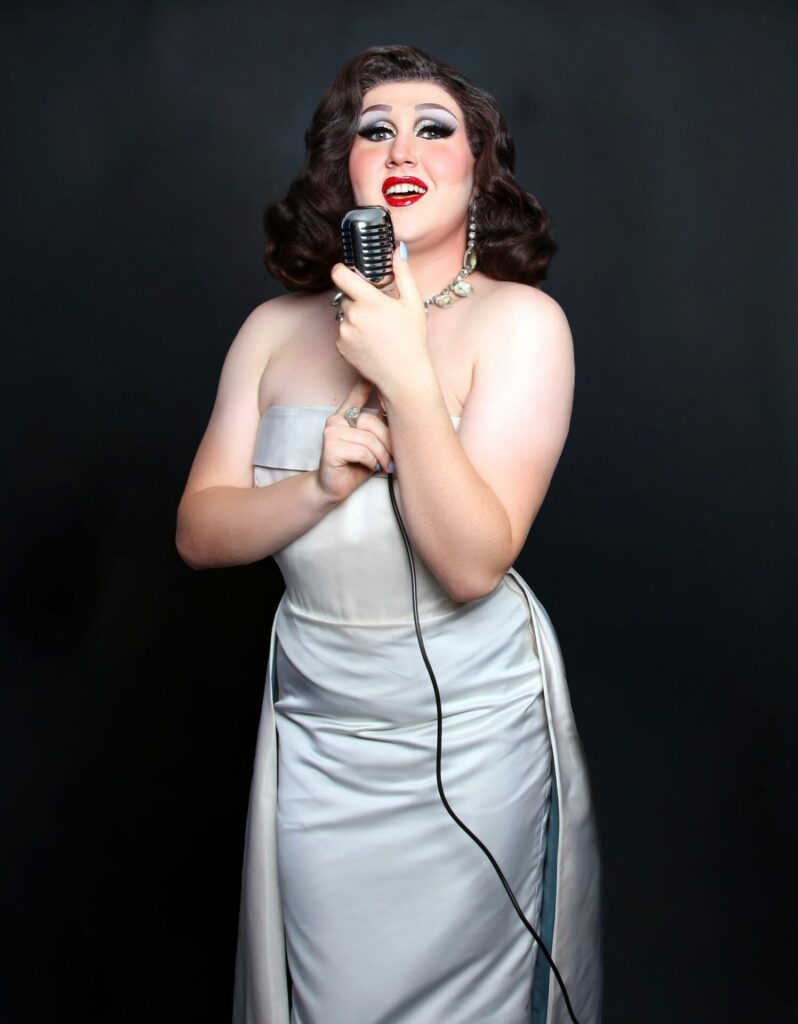
Today, drag queens and gender non-conforming identities are under intense scrutiny, especially in the USA where extreme conservative states seek to legislate where a drag queen can perform. If we expect the world to be more inclusive, embrace the LGBTQ+ identities, and broaden its perspective of what it means to be a man, woman, non-binary or other, shouldn’t we also as a community be holding that mirror up to ourselves as well?
Whatever your opinions about the show, one thing is for certain, like death and taxes, Drag Race will continue marching on and commanding the attention of millions for years to come. Do I think it’s lost its sparkle? Yes. But like any good thing, it’s nothing that a good, fully inclusive revamp wouldn’t solve.
“You may say that there are more franchises now than there are queens on the beaches of Brighton,” jokes Son of a Tutu. “And each new queen is as forgettable as the ones before them, and the ones yet to be hatched. And very few stars are being created nowadays like there were in the old days. However, until there is a Drag Race China, Drag Race Russia, Drag Race Afghanistan, Drag Race Nigeria, and every corner of the world where LGBTQ+ people are still being stigmatised, threatened, banned, persecuted, met with violence, then I say no; I want more, more, more. The good it has done to parts of the community, mainly cisgendered male queens and cisgender, male gay people, far outpaces the over-saturation.”
We now pass the mic to Mama Ru: will she allow the US show, her jewel in the crown, to evolve, and open the werkroom up to others in the wide and varied drag community? We’d like to hope so.
